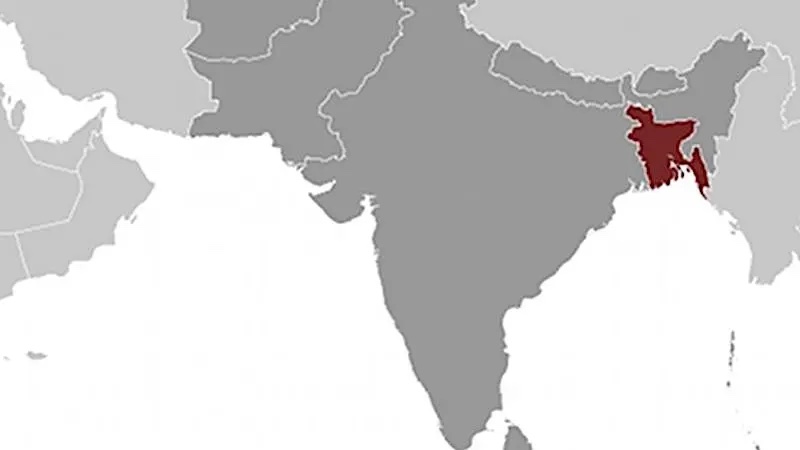In recent years, Bangladesh has shown a growing inclination to reduce Indian influence within its borders, signaling a significant shift in its foreign policy. This trend is particularly evident in the “India Out” campaign, which has gained considerable traction across the country.
A recent incident that highlights this changing dynamic is the expulsion of Indian personnel from the Bangladesh embassy, an event that has sparked widespread discussion and debate. As Bangladesh takes deliberate steps to assert its sovereignty and reduce external influence, the implications of this policy shift are profound for both countries and the broader South Asian region.
Bangladesh and India share deep historical, cultural, and geographical ties, with their relationship rooted in the events leading to Bangladesh’s independence in 1971. India played a pivotal role in supporting Bangladesh’s liberation from Pakistan, and since then, the two nations have maintained a complex and often ambivalent relationship. Over the decades, India has been a key partner in Bangladesh’s economic development, security, and regional diplomacy.
However, this close relationship has not been without its challenges. Issues such as water sharing, border disputes, trade imbalances, and perceived political interference have occasionally strained ties between the two nations. In recent years, a growing sentiment in Bangladesh suggests that the country is increasingly wary of India’s influence over its domestic affairs. This sentiment is crystallizing into a broader “India Out” policy, which advocates for reducing Indian involvement in Bangladesh’s internal matters.
The “India Out” Campaign: A Growing Movement
The “India Out” campaign, which has gained momentum in Bangladesh, is more than just a populist slogan; it represents a growing desire for greater national autonomy and resistance to perceived external domination. This movement has been fueled by several factors, including dissatisfaction with India’s approach to bilateral issues, concerns over sovereignty, and a sense of national pride.
One of the driving forces behind the “India Out” campaign is the belief that India exerts disproportionate influence over Bangladesh’s political and economic affairs. Critics argue that this influence often undermines Bangladesh’s sovereignty and hinders its ability to pursue an independent foreign policy. For example, there have been concerns over India’s role in Bangladesh’s electoral processes, trade agreements that are perceived as favoring India, and water-sharing arrangements that disadvantage Bangladesh.
The campaign has found support among various segments of Bangladeshi society, including political leaders, civil society groups, and the general public. Social media platforms have played a crucial role in amplifying the “India Out” message, with activists and citizens using these channels to express their frustrations and call for a rebalancing of the relationship between the two countries.
The recent expulsion of Indian personnel from the Bangladesh embassy marks a significant escalation in the “India Out” campaign. This incident has been widely interpreted as a symbolic assertion of Bangladesh’s sovereignty and a clear signal to India that its influence in the country is being re-evaluated.
While the specifics of the expulsion have not been fully disclosed, the move has been seen as a response to growing concerns over India’s involvement in Bangladesh’s internal affairs. It also reflects the broader sentiment that Bangladesh is seeking to chart a more independent course in its foreign relations.
This incident is not an isolated event but rather part of a broader trend in Bangladesh’s foreign policy. In recent years, the country has sought to diversify its international partnerships, building closer ties with China, Russia, and other global powers. This diversification is seen as a strategic move to reduce dependence on India and enhance Bangladesh’s geopolitical standing.
The growing “India Out” sentiment and the recent diplomatic incident are likely to have significant implications for India-Bangladesh relations. While the two countries are likely to continue cooperating on issues of mutual interest, such as trade, security, and regional stability, the relationship may become more transactional and less characterized by the deep historical ties that have traditionally defined it.
India, for its part, may need to reassess its approach to Bangladesh, taking into account the changing dynamics and the need to respect Bangladesh’s sovereignty. This could involve a more balanced and less intrusive approach to bilateral relations, focusing on mutual respect and equitable partnerships.
For Bangladesh, the “India Out” campaign represents an opportunity to assert its independence and pursue a more diversified foreign policy. However, this approach also carries risks, particularly if it leads to a deterioration in relations with India, a key regional player. Bangladesh will need to carefully navigate this delicate balance, ensuring that its quest for sovereignty does not come at the cost of its broader strategic interests.
The “India Out” campaign and the recent expulsion of Indian personnel from the Bangladesh embassy signal a new era in Bangladesh’s foreign policy. As the country takes deliberate steps to reduce Indian influence and assert its sovereignty, the dynamics of South Asian geopolitics are likely to shift. This move towards greater independence is a reflection of Bangladesh’s growing confidence on the global stage and its desire to chart its own course.
While challenges remain, particularly in managing the relationship with India, Bangladesh’s determination to pursue a more autonomous foreign policy is clear. As the “India Out” policy gains traction, it will be crucial for both Bangladesh and India to find ways to maintain a constructive and mutually beneficial relationship, grounded in respect for each other’s sovereignty and shared interests.

